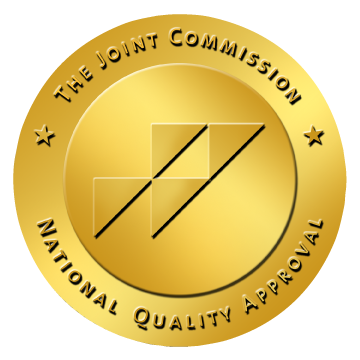For those who have never experienced bouts of depression or felt the despair associated with suicidal thoughts, it can be challenging to put yourself in the shoes of someone who has. Then again, many of us know what it's like to live with depression — a condition that affects almost 1 in 10 Americans.
A person in the throes of depression may feel like life is meaningless, find it hard to concentrate or focus, and struggle to see how to escape the crippling thoughts that rob them of joy. Still, research has proven that overcoming depression is possible, and it’s made easier with the help of a strong support network. If you believe someone you love is struggling, read on as we describe five of the most effective ways to help someone with depression and suicidal thoughts.
Depression and suicidal thoughts are complex issues influenced by a combination of factors. They are not solely the result of one cause but an interplay of genetic, biological, environmental, and psychological elements.
Biologically, neurotransmitter imbalances and genetic predispositions can play a role in depression. Psychological factors like negative thought patterns, low self-esteem, and feelings of hopelessness also contribute. Stressful events, such as trauma or significant life changes, can trigger or worsen depressive episodes.
Environmental factors, like social isolation or a lack of support, can contribute to depression, as can experiences of abuse or trauma. Substance abuse also increases the risk. Certain medical conditions and medications can lead to depression or exacerbate it.
Family history can be a risk factor, and depression can affect individuals of any age, though it often begins in adolescence or early adulthood. Gender plays a role, with women more commonly affected. Access to lethal means can increase the risk of acting on suicidal thoughts.
Importantly, depression is treatable through various therapies, including psychotherapy and medication. If someone is experiencing suicidal thoughts, immediate help is crucial. Contacting a mental health professional, crisis hotline, or trusted person in one's life is essential. In the United States, the National Suicide Prevention Lifeline at 1-800-273-8255 can provide assistance and support.
Before you can help someone, you must first be able to recognize that what your friend or family member is experiencing is depression. Although symptoms of depression or suicidal thoughts can vary by person, there are a few common signs that shouldn’t be missed. Be on the lookout for feelings of emptiness or hopelessness, unexplainable outbursts of anger, a loss of interest in activities or hobbies once enjoyed, changes in appetite, frequent mention or conversations around death, and insomnia or excessive sleeping.
Signs that someone could be dealing with suicidal thoughts include:
The idea of broaching the subject of depression or suicide with a loved one can feel daunting. Not only is it hard to accept the reality of the situation, but it’s perfectly normal to feel like you risk making it worse by talking about it. The truth is that avoiding someone who is depressed or pretending you don't notice can do far more damage than starting the conversation — even if you’re afraid you’ll say or do the wrong thing.
Emotional intelligence, or EQ, is a term that has grown in popularity in the business world. Many leaders find that harnessing their EQ's power to the fullest can help them build deeper, more meaningful relationships with peers and subordinates. However, the same premise behind why EQ matters in the workplace also applies to a situation where you're trying to help someone experiencing depression or suicidal thoughts.
EQ "is the ability to understand, use, and manage your own emotions in positive ways to relieve stress, communicate effectively, empathize with others, overcome challenges and defuse conflict.” Some EQ-rich traits to focus on in these conversations include empathy, active listening, and self-awareness. Be assertive, but don’t point fingers — and use your ears more than your mouth.
No matter how good their intentions are, the average person should not take on the task of guiding someone through depression alone — especially when suicidal thoughts are involved. Healthcare professionals and mental health practitioners undergo extensive education and training to equip them with knowledge of evidence-based practices.
Utilizing a close-knit network of supporters is an integral part of the recovery process. However, most people suffering from depression or suicidal thoughts ultimately need professional help to get better. Because of this, it’s always in the best interest of your friend or family member that you encourage them to seek professional treatment.
The anguish and exhaustion felt by someone supporting a loved one battling depression can be overwhelming. While mental health experts will always tout the value of a support system, those same experts will also caution anyone involved to prioritize their own mental health first. When loved ones are in the mix, this is easier said than done, but it’s essential that you set boundaries and practice self-care. Always set aside time for yourself to unwind and recharge. It may go without saying, but you can never pour from an empty cup.
Assisting someone with the realization they may be depressed and offering support to help them get through it is an admirable and beneficial act—but you don’t have to go it alone (nor should you). The most helpful thing for someone facing depression or suicidal thoughts to do is to undergo treatment from trained and skilled professionals like the ones at New England Medical Group.
We provide customized care plans that empower patients to overcome whatever they’re facing on their own terms. More importantly, we give patients the tools they need to cope with the underlying issues that could trigger depression or suicidal thoughts in the future.
Contact us today if you'd like to learn more about what we can do to help your friend or family member struggling with depression.
